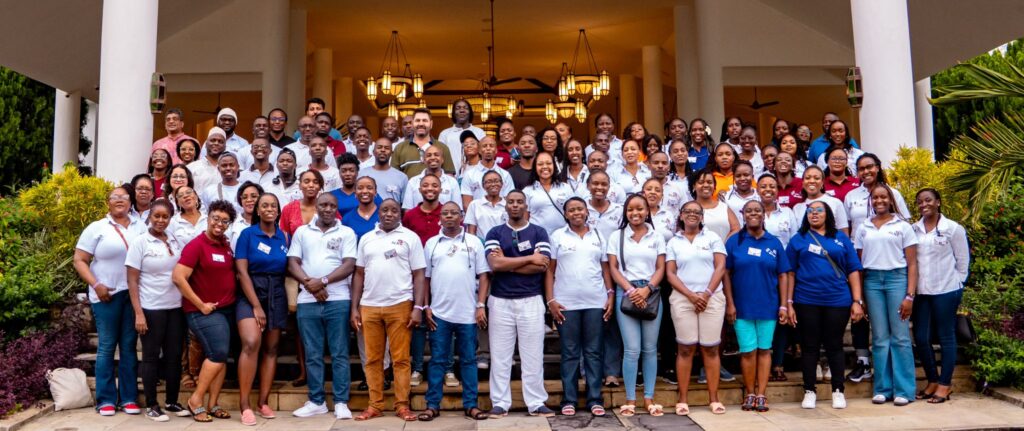Africa Business and Investment News Roundup
African Development Bank Mulls $500 Million Facility to Mobilize Financing for Smallholder Farmers:
The African Development Bank (AfDB) is planning a $500 million facility designed to unlock up to $10 billion in financing for smallholder farmers and agribusinesses across Africa. Announced by AfDB President Dr. Akinwumi Adesina in March 2025, the initiative aims to address critical funding gaps that limit agricultural productivity and food security.
This facility is expected to benefit countries like Kenya, where smallholder farmers play a major role in the economy but often face challenges accessing affordable credit. By mobilizing additional resources, the AfDB hopes to strengthen food systems, boost rural incomes, and support sustainable agricultural growth across the continent.
Source: African Development Bank
Kenya and Netherlands Partner to Promote Investments
The State Department of Investment Promotion (SDIP) and the Netherlands Business Hub Kenya (NLBH) have formalized a partnership through a Memorandum of Understanding (MOU) aimed at bolstering support for Dutch enterprises operating in Kenya and enhancing investment prospects within the nation. This agreement was signed during the state visit of King Willem-Alexander and Queen Máxima of the Netherlands.
Principal Secretary for Investment Promotion, Abubakar Hassan Abubakar, emphasized the MOU’s significance in advancing Kenya’s Bottom-up Economic Transformation Agenda (BETA) and acknowledged the Netherlands as a key trade and investment ally. Jules Delahaije, Chairman of NLBH, highlighted the value of public-private collaboration in enhancing business opportunities and strengthening bilateral relations. Dutch Ambassador to Kenya, Henk-Jan Bakker, echoed these sentiments, noting that the partnership is expected to open new avenues for Dutch businesses in Kenya while further enhancing bilateral economic relations.
Source: Kenya News Agency
Kenya-UK Partner to Strengthen Business Regulations
In March 2025, Kenya and the United Kingdom conducted a three-day workshop in Nairobi aimed at enhancing Kenya’s business regulatory framework. The initiative sought to address challenges faced by both local and international businesses operating in Kenya by equipping officials with policy tools and insights from the UK’s regulatory practices. The workshop also aimed to boost intra-African trade through increased compliance with the African Continental Free Trade Area (AfCFTA).
Key participants included representatives from the Kenya Bureau of Standards (KEBS), Kenya Accreditation Service (KENAS), and the UK’s Department for Business and Trade. Discussions emphasized the importance of transparent, predictable, and evidence-based regulations to foster investment, enhance industry competitiveness, and safeguard consumer interests. This collaboration underscores the commitment of both nations to fostering economic growth and creating a more business-friendly environment in Kenya.
Source: GOV.UK
Tanzania
Tanzania’s mineral recovery value surges, gold leads growth
Tanzania’s mining sector continues to gain momentum, with a notable rise in mineral recovery value — gold playing a key role in driving this growth. In the quarter ending September last year, the country recorded a 24.3% increase in mineral recovery, reaching $1 billion (TSh2.6 trillion), compared to the same period in the previous year. This surge was largely attributed to the extraction of gold, diamonds, coal, and construction materials.
Industry stakeholders are optimistic about the sector’s trajectory, crediting the Bank of Tanzania’s gold purchasing initiatives and improved market facilitation measures, which have helped reduce cases of mineral smuggling. There is a growing push for the fast-tracking of new projects, further exploration efforts, and increased support for small-scale miners to maximize their output and contribution to the industry.
Source: the Citizen
TÜV Rheinland Extends 3-Year PVoC Contract with Tanzania Bureau of Standards, Expanding to New Zones & Facilitating Market Entry and Global Trade
TÜV Rheinland has renewed its three-year contract with the Tanzania Bureau of Standards (TBS) to continue issuing Certificates of Conformity (CoC) under Tanzania’s Pre-shipment Verification of Conformity (PVoC) program. The extension of this contract will facilitate market entry and global trade for businesses in Tanzania, streamlining the process of quality verification for goods. This renewal expands TÜV Rheinland’s service areas to include the United Kingdom (England, Scotland, Wales, Ireland) and the Indian Subcontinent (India, Pakistan, Sri Lanka, Nepal, Bangladesh, Afghanistan, Myanmar). Additionally, the company retains its authorization in the United Arab Emirates and the Far East (Japan, South Korea, Indonesia, Malaysia, Philippines, Thailand, Singapore, Vietnam, Cambodia).
The PVoC program, initiated in 2012, aims to protect Tanzanian consumers from substandard products by ensuring imported goods meet national and international standards. Regulated products include automotive items, chemicals, electronics, food products, furniture, mechanical materials, gas appliances, paper products, stationery, safety equipment, toys, sports equipment, and used products.
TÜV Rheinland’s renewed mandate underscores its commitment to facilitating global trade and ensuring compliance with quality standards, thereby enhancing consumer safety and market confidence in Tanzania.
Source: The Citizen
The government urges the public to adopt digital payment for inclusion
The Tanzanian government is actively promoting the adoption of digital payments to foster financial inclusion across the country, which can lead to increased economic participation.
The Tanzanian government is encouraging wider use of digital payments to promote financial inclusion and improve efficiency in economic activities. Speaking at a CRDB Bank seminar, Dr Charles Mwamwaja from the Ministry of Finance highlighted that adopting digital transactions is key to the country’s development and aligns with President Samia Suluhu Hassan’s digital economy agenda.
Government platforms such as the Government Electronic Payment Gateway and the Tanzania Automated Information System are already enhancing revenue collection and service delivery. CRDB Bank has also invested in expanding Internet banking, allowing customers to carry out financial transactions conveniently and securely. The initiative underscores the importance of public awareness and cybersecurity as Tanzania moves toward a more cashless economy.
Source: Trendsnafrica
Tanzania’s External Sector Improves in 2024
Tanzania’s external sector exhibited significant improvement, with the current account deficit narrowing to $2.57 billion in the year ending August 2024, down from $3.85 billion the previous year. This positive trend is attributed to a global economic recovery, robust export growth, and stable import expenditures.
Exports of goods and services surged to $15.06 billion during this period, up from $13.29 billion, driven by increased revenues from tourism, gold, and traditional agricultural products like tobacco and cashew nuts. Notably, gold exports rose by 8.2% to $3.19 billion, and horticultural exports grew by 35.3% to $454.4 million.
Service receipts also experienced significant growth, reaching $6.95 billion, fueled by a 21.7% increase in tourist arrivals, totalling 2,051,404 visitors. Transport services contributed $2.6 billion, reflecting enhanced freight activities.
On the import side, goods and services saw a modest increase to $16.43 billion, with notable imports including refined petroleum products, iron and steel, and electrical machinery.These developments underscore Tanzania’s ongoing economic recovery and the strengthening of its external sector amid favourable global conditions.
Source: TanzaniaInvest
Uganda
Technological innovation fuelling growth in Uganda’s insurance sector
Uganda’s insurance industry has experienced remarkable growth over the past decade, expanding from UGX200 billion (approximately US$54.5 million) to an estimated UGX1.8 trillion (over US$490.5 million) by the end of 2024. This surge is largely attributed to technological innovations and a robust regulatory framework that have enhanced efficiency and customer satisfaction within the sector.
Despite this progress, insurance penetration remains low, with less than 1% of Ugandans insured. To address this, the Insurance Regulatory Authority of Uganda (IRA) has introduced a regulatory sandbox, allowing insurers and startups to test new solutions in a controlled environment. This initiative aims to foster innovation, improve accessibility, and make insurance products more affordable for the broader population.
Industry leaders emphasize the importance of leveraging technology to develop user-friendly insurance solutions that cater to the evolving needs of consumers, thereby promoting greater financial inclusion across Uganda.
Source: AfricaHead
Private sector hits new heights with improved conditions
In February 2025, Uganda’s private sector experienced a notable improvement in operating conditions, as indicated by the Stanbic Bank Purchasing Managers’ Index (PMI), which rose to 52.6 from January’s 49.5. This uptick was driven by renewed expansions in business activity and new orders, attributed to stronger demand and a rebound in market conditions. Companies responded by increasing input purchases and staffing levels, reflecting sustained confidence in future output. However, firms also faced higher cost burdens due to rising purchase prices and wage bills, leading to increased output charges for the sixth consecutive month as businesses passed on these costs to clients.
Source: Monitor
Climate-smart agriculture project launched in Katakwi
A climate-smart agriculture project has been launched in Katakwi District, Uganda, under the Uganda Climate Smart Agricultural Transformation Project (UCSATP). The six-year initiative, valued at UGX 1.2 trillion and supported by the World Bank, aims to enhance agricultural productivity, strengthen value chains, and improve household resilience to climate change. It is expected to directly benefit 760,000 households and indirectly support nearly 1.9 million more across the country.
At a recent stakeholder meeting, leaders discussed infrastructure priorities and strategies for effective implementation. While the project is seen as a critical step toward transforming agriculture and boosting livelihoods, concerns around limited staffing in key sectors were raised, highlighting the need for further support to ensure long-term success.
Source: NilePost
Rwanda
Rwanda ranks 4th best investment destination in Africa
Rwanda has been ranked as Africa’s fourth most attractive investment destination in the Rand Merchant Bank’s (RMB) “Where to Invest in Africa 2021” report, advancing from ninth place the previous year. This improvement reflects the country’s robust economic performance and favourable business environment. Egypt secured the top position, followed by Morocco and South Africa.
Key sectors contributing to Rwanda’s economic growth include tourism, transport, and trade. Despite the challenges posed by the COVID-19 pandemic, the Rwanda Development Board reported 172 registered investment projects valued at $1.2 billion by the end of 2020. The government has also initiated 24 new double taxation treaties and established Rwanda Finance Limited to promote the Kigali International Financial Centre (KIFC), enhancing the country’s appeal to investors.
Source: GOV.RW
Value addition to minerals, pays off as demand goes up
Rwanda’s mining sector has experienced a significant resurgence, with mineral revenues growing by 36.4% in 2022, surpassing traditional exports like coffee and tea. This growth is attributed to increased value addition and rising international demand, particularly for minerals such as cassiterite, coltan, and wolfram.
The National Bank of Rwanda reports that in 2022, export earnings from cassiterite, coltan, and wolfram increased by 50.7%, 51.3%, and 7.8%, respectively. This positive trajectory is expected to continue, bolstered by ongoing investments in the mining sector and the recovery of global markets.
Source: Rwanda Today
Rwandan market watch: Capital markets show strong rebound
Rwanda’s capital markets have experienced a significant resurgence, with a remarkable 530% surge in market turnover recently. This growth is primarily attributed to increased trading volumes in key counters such as Bank of Kigali, I&M Bank Rwanda, and Bralirwa.
Despite these positive developments, the Rwandan franc has faced depreciation pressures, experiencing a 1.5% decline year-to-date. Factors contributing to this trend include heightened demand for the US dollar, declining export commodities, and external debt repayments.
On the fixed income front, the market remains robust, with subscription rates exceeding 140% in recent treasury bill auctions, reflecting strong investor interest driven by attractive yields. Overall, Rwanda’s capital markets are on a positive trajectory, with both equities and fixed income sectors attracting substantial investor interest.
Source: CNBC Africa












